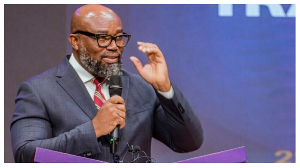Of the twenty-nine (29) political parties recognised by the Electoral Commission (EC), only forteen (14) have been active ahead of this year’s elections, touting their campaign and manifesto promises as the best.
Two (2) out of these forteen (14) parties – the opposition National Democratic Congress and the incumbent New Patriotic Party (NPP) – have dominated elections since 1992 when Ghana returned to multiparty elections.
The political parties that have demonstrated their preparedness to take part in the upcoming elections and their key message have been listed below:
- Great Consolidated Popular Party (GCPP)
Key campaign message for 2020: Domestication.
Since its inception at the commencement of the Fourth Republic, the GCPP has advocated the implementation of a domestication policy. The domestication mantra was coined by the late Dan Lartey, the Founder and the first presidential candidate of the GCPP in the 2002 and 2004 presidential polls.
- Ghana Freedom Party (GFP)
The GFP campaign message is multi-faceted. The party’s key message includes the following: One-year maternity leave, free fertilizer and cutlass for farmers, the inclusion of local language in parliament, free education, water and electricity.
- Liberal Party of Ghana (LPG)
The party’s key campaign message is a promise to transform the sports and entertainment sectors in Ghana into a $10 billion industry to create more jobs and wealth. Leader of the party, Kofi Akpaloo, also wants to legalise and regulate marijuana for industrial use.
- National Democratic Congress (NDC)
As the main opposition party, the NDC campaign message, which is contained in the party’s manifesto, is quite exhaustive. Key among the many campaign promises is a promise by the party’s leader, John Dramani Mahama, to create one million jobs, legalise Okada and make Technical and Vocational Education and Training (TVET) free at every level. The NDC is also promising free primary healthcare.
- People's Action Party (PAP)
PAP leader, Kwesi Busumbru, is heavy on the fight against corruption. He has promised to amend the 1992 Constitution to take out the indemnity clause that makes it difficult to prosecute a former President. He is convinced this will deal with past Presidents who are found to be corrupt. PAP also wants to improve the training and development of Ghanaian youth.
- New Patriotic Party (NPP)
As the incumbent party, the NPP is focused on completing the 2016 campaign promises and fine-tuning them for optimum impact after 2020. Many of the promises in the NPP manifesto has been described as progressive.
- All People's Congress (APC)
Hassan Ayariga, the leader of the party, wants just four years to put the country in order. The APC has promised to formulate an elaborate national development plan to steer the country to economic prosperity.
- Ghana Union Movement (GUM)
Presidential Candidate, Christian Kwabena Andrews (Osofo Kyiriabosom) wants to revive the industrialisation drive and governance vision of Dr Kwame Nkrumah.
- National Democratic Party (NDP)
NDP supports some policies of the current NPP government, like planting for food and jobs and the Free Senior High School (SHS), but would add more modules to further improve on them.
- People's National Convention (PNC)
PNC is yet to elect a flagbearer for the 2020 polls. Its campaign promise is also yet to be made public.
- Progressive People’s Party (PPP)
The PPP just elected Brigette Dzorgbenuku as its flagbearer for the 2020 polls. Her campaign promises are yet to made public. But the party wants Ghanaians to reject the dominant NPP and NDC.
- United Front Party (UFP)
Leader and campaign message for the 2020 polls are yet to be made public.
- Democratic People's Party (DPP)
Leader and campaign message for the 2020 polls are yet to be made public.
Independent candidates
Marricke Kofi Gane
The management consultant promises, among other things, a centralised citizen identification system, where every citizen would get one identification card to access healthcare and financial services. He also wants to improve security by giving the Inspector General of Police (IGP) complete independence to operate.
Joseph Osei Yeboah
Yet to be made public.
Kofi Koranteng
Yet to be made public.
General News of Friday, 18 September 2020
Source: www.ghanaweb.com













